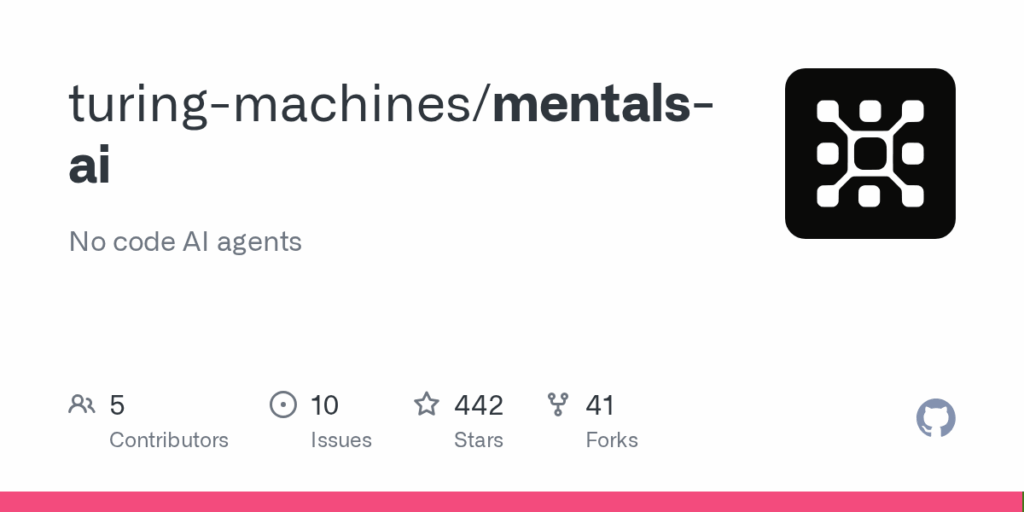mentals ai
Basic Information
Mentals AI is a developer-focused framework for creating and running LLM-driven agents defined as plain text markdown files with a .gen extension. The repo treats each .gen file as an executable agent that embeds instructions, control flow, and calls to built‚Äëin tools, enabling developers to express loops, branching, and state entirely in natural language instead of writing scaffolding code in Python or other languages. Its Agent Executor runs agents in a recursive loop where the model chooses the next instruction and manages context. The project includes examples of game generators, multi-agent interactions and content pipelines, and targets integration with OpenAI-compatible providers including optional Llama3 support. The repository also documents build and runtime requirements, a config.toml for API configuration, and work-in-progress components like a local vector memory branch and a web UI.








